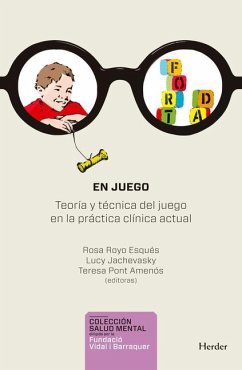This work aims to value play and stimulate its use in working with children, who by playing encourage this capacity in professionals and allow everyone to continue learning while putting themselves, over and over again, in play. Play, for children, is a privileged means of expression, which makes it a valuable diagnostic tool and, given its transformative potential, a therapeutic instrument. This book provides an up-to-date view of the use of the game in clinical work. The basic conditions for the development of the game, diagnostic or psychotherapeutic sessions are exposed. It shows, with abundant examples, the paths that the game follows in children without difficulties and the turning points that can generate psychopathological problems. Evolutionary psychology, interrelating it with psychoanalytic models of development, supports the observations. The authors reflect on the progress of games and toys, showing the historical continuity and its vicissitudes, up to the current technological toys. A vision of the different psychoanalytic perspectives on the game is provided, also incorporating a view from the systemic-constructivist theory and from the practice of art therapy.
Bitte wählen Sie Ihr Anliegen aus.
Rechnungen
Retourenschein anfordern
Bestellstatus
Storno








